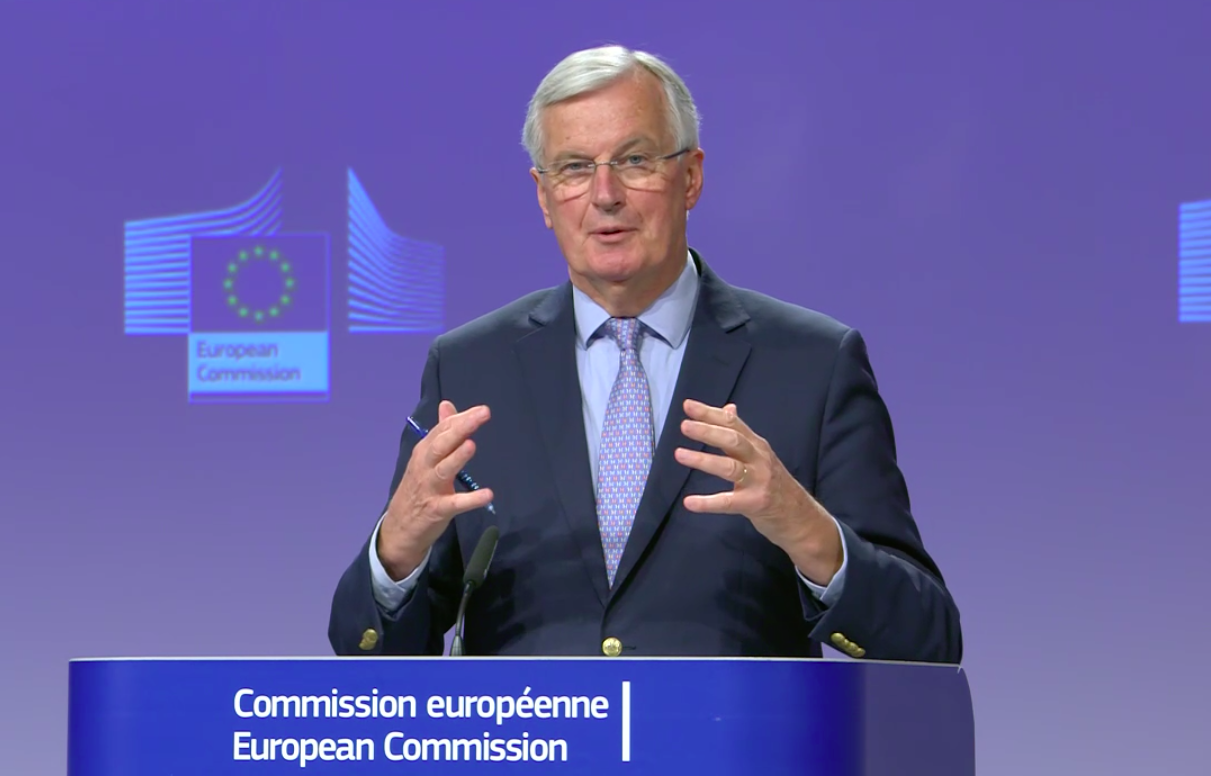EU Brexit trade demands won't change to suit UK, Michel Barnier's advisor says

The European Union's Brexit trade demands will not change under UK pressure, Michel Barnier's senior advisor has said - with just one month to go to agree an extension.
Stefaan de Rynck told an online conference that member states had again backed the "maximalist" negotiating mandate this week in discussions with Brussels' chief negotiator.
But he said the EU was open to discussions about an extension to give more time for talks, and warned that a no-deal would prove to be "very, very disruptive".
The EU is insisting the UK sign up to a slate of safeguards on product standards and human rights in exchange for access to its market - that Brussels calls the "level playing-field".
But the British government is refusing to accede to the demands, claiming they would be a breach of "sovereignty" and prevent the UK from making changes independently of the EU.
"As to our demands being unreasonable ... these are our demands, no qualification the UK can put to them will change our demands," Mr de Rynck told the meeting organised by the Institute for Government.
"This is the mandate that the 27 have given us with European Parliament support. Michel Barnier and the team had good discussions this week with the team and its the parliament.
"People rallied just around that mandate that was basically only adopted a couple of months ago. We need to find the space for compromise that is loyal to the mandate of the EU and that is basically the challenge that lies ahead of us."
British officials close to talks have said the EU needs to recognise that its current mandate will never be agreed by the UK and that if it wants a deal they will have to change.
The digging in on both sides raises the prospect of a no-deal at the end of the year. To avert it, a deal would have to be signed, or an extension to the transition period agreed.
Boris Johnson has however said the UK will not sign up to a longer transition period under any circumstances, but the official deadline in EU law to agree on is the end of June - now just one month away.
These are our demands, no qualification the UK can put to them will change our demands
Stefaan de Rynck, senior advisor to EU negotiator
A further round of talks is due to start on Monday and last the week, ahead of a high-level "stock-take" in mid-June between Boris Johnson and Commission president Ursula von der Leyen. The last round of talks earlier this month ended with little significant progress to report on both sides, with the UK accusing the EU of being ideological and the EU accusing the UK of not understanding the situation it had put itself in by leaving.
Mr de Rynck, who is sometimes used as an outrider by the European Commission to explain its positions in detail, told the event: "We have seven months left and huge challenges.
"The future relationship... there's a couple of tough nuts that need to be cracked still in the economic and security partnership and in the governance."
He continued: "There is the protocol in Northern Ireland which needs to be implemented and ready to be implemented by January 1 (2021) which is again seven months from now.
"If there's a need for more time, it needs to be decided jointly and so we have said we're certainly open for that. My personal assessment with also the Covid crisis is we need to get of course to the economic recovery which will be a massive challenge.
"Is it wise to end the transition at the end of this year? It's an open question but certainly on the EU side we have said we are open for an extension.
"David Frost when he gave a speech... basically acknowledged that the end of transition will be a negative economic situation, will generate negative economic effects short-term.
"Well is this the right time to do it? It's not in our hands, it takes two to tango as they say. So we're certainly open to discuss an extension of transition. It's a relatively easy decision to take if you agree on the duration and the lump sum."
He added: "We need to start talking about this soon if that is what the UK would want.
Read more
Brexit negotiator says he doesn’t answer to Dominic Cummings

 Yahoo News
Yahoo News 
